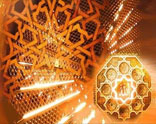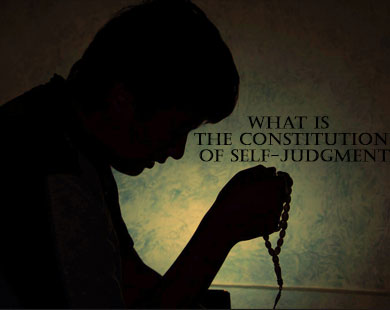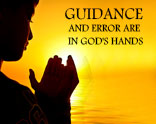Islamic Theology: Unity of God God's Names and Attributes
Divine Names and Attributes
Islam encourages man to ponder on the creation of God and His attributes of actions. God is unlimited and hence it is impossible for a limited being to comprehend the Essence of God.
Thus, Muslim theologians discuss the Names and the Attributes of God rather than His Essence.
Discussions about the Divine Names and Attributes are among the most important yet complicated theological discussions in Islamic theology, philosophy and ‘Irfan (mysticism). Thus, various opinions and theological sects have emerged.
The two main fundamental principles when discussing the Attributes of God is that God is:
1- Transcendent (beyond description; Tanzih) and hence none is like unto Him (no Tashbeeh).
2- Suspension (Ta’teel) of knowing the Divine Attributes is not permitted.
Divine Names
The noble Quran in various chapters states that all the Beautiful Names belong only to Allah. The Beautiful Names of Allah are numerous and they all belong to Him, the Almighty.
Nonetheless, several Prophetic traditions state that the Names of Allah are ninety nine Names and whoever counts them (believingly) shall be admitted into Paradise. Theologians also discuss as to whether we are allowed to give any beautiful names to Allah or it must be introduced to us by Allah or His Messenger? In short, most of the scholars believe or prefer the latter.
Divine Attributes
The Divine Attributes are classified into two categories:
1- The Attributes of Essence
The Attributes of Essence are also divided into the Attributes of Beauty or affirmative Attributes, such as the Attributes of knowledge, might and life, and the Attributes of Glory or the negating Attributes which we denote them from God such as ignorance, inability, physical, component, visible, occupying time or space, needy, changing and any other insufficiency.
2- The Attributes of Acts
The Attributes of Acts are Attributes that are related to God once His action takes place, such as the Creator and the Sustainer. In short, all Divine Attributes stem from five major ones: Unity, Knowledge, Might, and Perpetual (without beginning; Azali ) and Endless (Abadi ).
His Attributes are not distinct from His Essence
As mentioned earlier, the division of the Divine Attributes does not mean God is a compound of different attributes and characters. Glory be to Allah. The above divisions are solely for educational purposes.
Is the Word of God Created or Eternal?
Perhaps the most controversial theological discussion in the first few centuries of the Islamic era was the issue about the nature of the Words of God, whether or not it is created. By the Words of God we mean the sounds and the words revealed to the Prophets.
Shi’a theologians believe the Words of God were being created by Allah when necessary.
For instance, when Allah wanted to reveal the message of worshiping Him to people, He created the following Words and revealed them to Prophet Muhammad (peace be upon him and his household): ﴾O you mankind! Worship your Lord who created you.﴿ [2:21] The Quran also confirms that the Words of God are created. [21:2]
Is God Visible?
Nearly all Sunni theologians believe that God will be seen in the Hereafter and it is also possible to see Him in this world, whether in sleep or when awake. Their main reason for this dogma is some ambiguous Ayaat and numerous Hadiths that they regard as authentic. The Shi’a theologians on the contrary, but unanimously, believe that our vision can only grasp objects that are physical, stand within our sights, have color and light reflected on them. The Almighty Allah is beyond all of these and hence it is impossible to be physically seen whether in here or in the hereafter. The ambiguous Ayaat also must be interpreted by the established Ayaat such as: ﴾No vision can grasp Him, but He grasps all vision.﴿ [6:103] Also see the Holy Quran: 7:143, 4:153, 25:21 The narrations about seeing God as bright as the full moon and similar narrations are all fabricated and are nothing other than Israelite narrations.
The Imams of Ahlul-Bayt (peace be upon them) have explicitly and unambiguously denoted the dogma of seeing God whether in here or in the hereafter. They have, however, confirmed that God is visible both in here and in the hereafter by the reality of faith and certainty of heart.
* Author: Sheikh Mansour Leghaei.




















